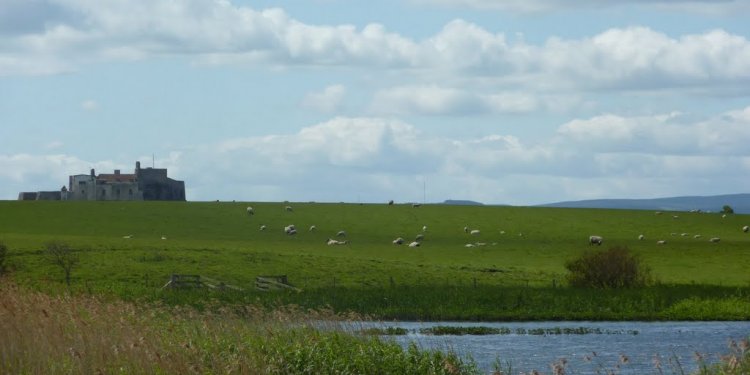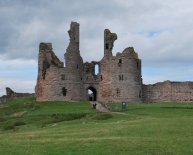
Lindisfarne map England
Lindisfarne, also called Holy Island, is a tidal island off the northeast coast of England. Home to a population of less than 200, Lindisfarne is connected to the mainland by a causeway that is cut off twice a day by the tides.
Reputation for Lindisfarne Priory
The monastery of Lindisfarne was founded by St. Aidan, who was simply delivered from Iona off the west coast of Scotland to Northumbria at request of King Oswald around 635 AD. Monks from neighborhood of Iona decided regarding the island, therefore became the base for Christian missions in northern England also sent an effective goal to Mercia. Northumberland's patron saint, St. Cuthbert, had been a monk and abbot associated with the Lindisfarne Monastery, and soon after became bishop of Lindisfarne.
Beginning in the early 700s, monks associated with neighborhood produced the famous illuminated manuscript referred to as Lindisfarne Gospels. It started as an illustrated Latin copy of the gospels of Mark, Luke, Matthew and John, after that when you look at the 900s a monk called Eadfrith added an Anglo-Saxon (Old English) gloss towards the Latin text, creating among the earliest Old English copies associated with Gospels.
The Lindisfarne Gospels are illustrated in a Celtic style and had been initially covered with a superb material case created by a hermit. This, but had been lost when Viking raids in 793 sacked the monastery, killed lots of the community, and pushed the monks to flee (taking together the body of St Cuthbert, that is today buried at Durham Cathedral).
The priory had been re-established in Norman times as a Benedictine monastery and continued until its suppression in 1536 under Henry VIII. It is now a ruin in proper care of English Heritage, whom additionally run a visitor center close by. The neighboring parish chapel is still used.
Recently Lindisfarne has become the center for revival of Celtic Christianity in the North of England; the minister of this church discover a well-known composer of Celtic Christian books and prayers. Lindisfarne has actually hence become a popular retreat center plus getaway destination.
What things to See at Lindisfarne Priory
Lindisfarne had been primarily a fishing community for quite some time, but tourism grew steadily for the twentieth century, and is today a rather preferred destination. By staying on island although the wave cuts it off (time permitting) the non-resident customer can go through the area in a much quieter state of mind, as most visitors leave whenever tide is rising again. It's possible, weather condition and wave permitting, to go at reduced tide throughout the sands after the older crossing range known as the Pilgrims' Method and marked with articles: it has refuge boxes for folks who have remaining their particular crossing too-late.
A Well Known delicacy on Lindisfarne crab sandwiches, which are widely accessible during the island's shops and cafés. The small Lindisfarne Castle, predicated on a Tudor fort, that has been refurbished inside crafts and arts style by Sir Edwin Lutyens and it has a garden created by Gertrude Jekyll. The palace, garden and nearby lime kilns come in the care of the National Trust and open to visitors.
Lindisfarne had a big limeburning business and also the kilns tend to be extremely complex in Northumberland. You may still find some traces regarding the jetties in which the coal was imported as well as the lime exported nearby the at the base of the crags. Lime was quarried regarding island and remains associated with waggonway involving the quarries while the kilns produces a pleasing and easy stroll.








